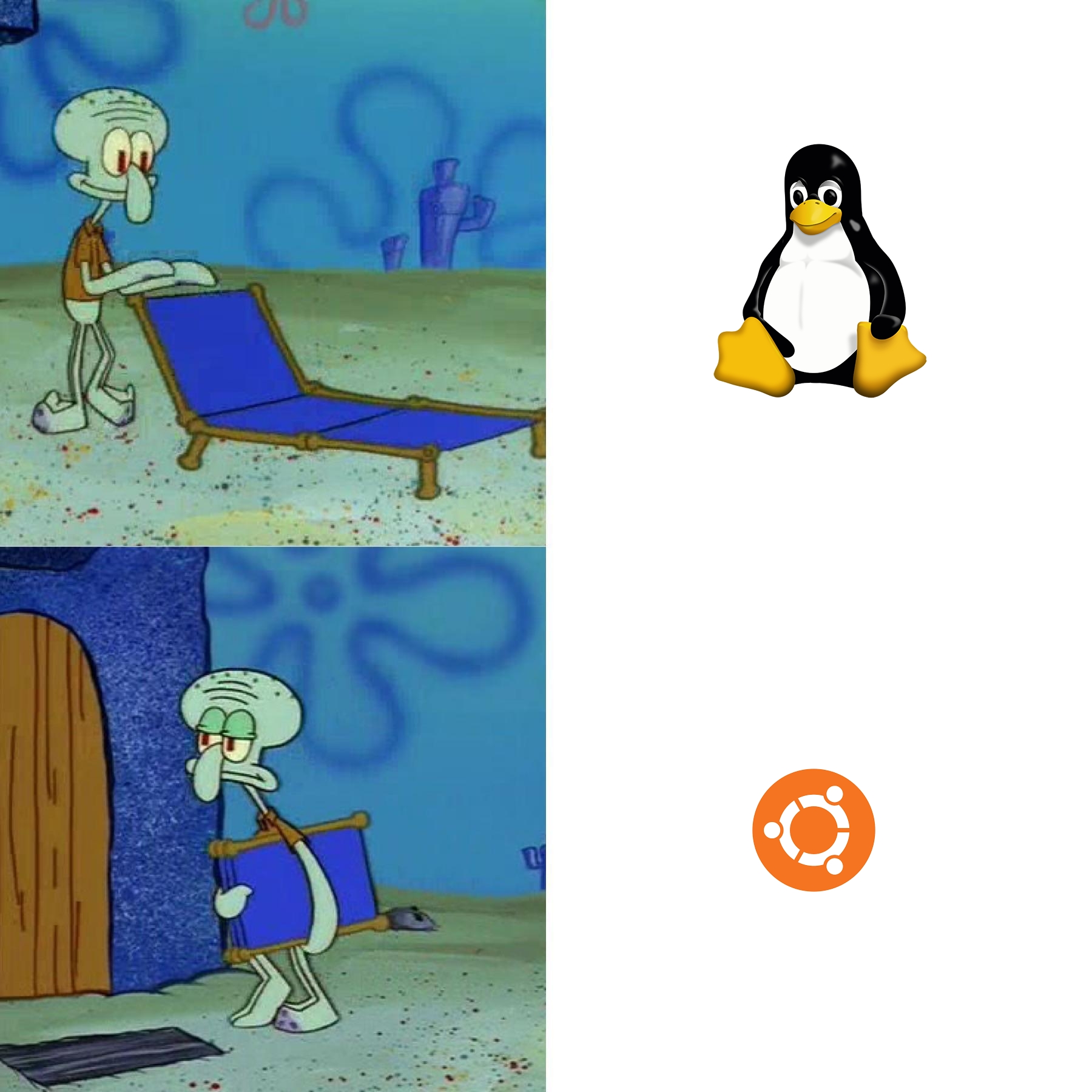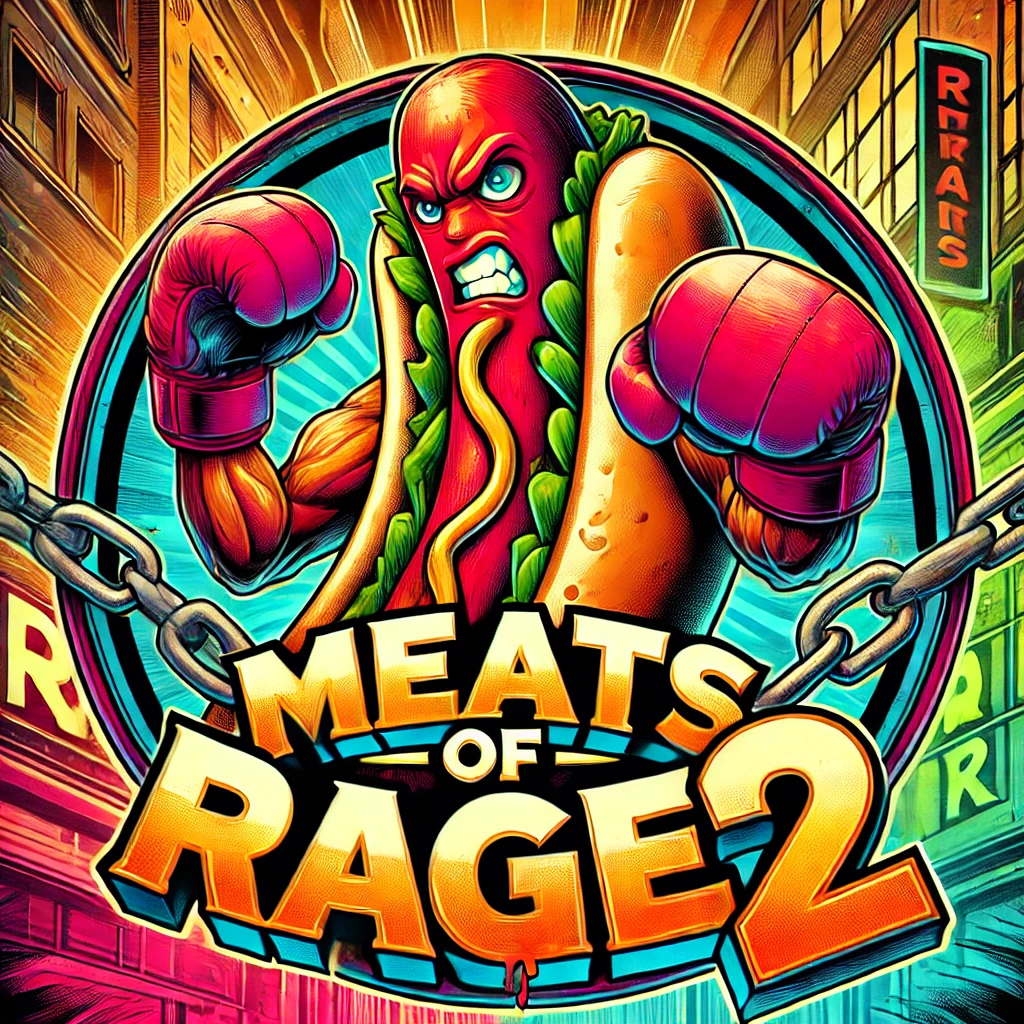2024 is the Year of Linux on the Desktop, at least for my boyfriend. He’s running Windows 7 right now, so I’ll be switching him to Ubuntu in a few days. Ubuntu was chosen because Proton is officially supported in Ubuntu.
it is kinda wild that people abandon Windows 7 because of Steam and not because Microsoft stopped patching it several years ago
Ubuntu was chosen because Proton is officially supported in Ubuntu.
I don’t think Steam actually recommends any distro since some time anymore
People don’t care about security until they get hit. Source: working in IT for 10 years.
Removed by mod
“I don’t worry about missing security patches. I just have 5 anti-virus tools running simultaneously, they keep me safe.”
Or those people who actively avoid patches in general, because “they make my device slow”
I mean, they do make your device slow. That why tools like InSpectre exists. For some old cpu’s like my notebooks one it can be up to 20% performance impact, so if you not planning to use it with internet (or at least as main access point via browser) ever again, why not get yourself free performance?
sure, if you actually plan to take the device off the network, it should be fine. but that’s definitely not what most people who complain about that will do.
And all of the anti-virus tools are 50 updates behind so they’re essentially non-functional bloatware even moreso
Effective immediately employees must update passwords every week, and cannot match any past password.
Managers will receive hardware security dongles to make their logins easier. Employees may feel free to register their personal hardware security dongles on site but off the clock.
I see it more in: people won’t switch for security reasons if it means giving up usability
I would support a law that requires software companies to open source software that they discontinue support on.
That way, companies that disappear don’t have their customers at risk.
And software companies will support software for longer.
I think the problem with this is that the corpos will just keep pushing out updates that barely change anything and call the device “supported”
There is sure to be some of that, but they will at least get the blame for when it goes poorly.
They are obligated by many of their corporate and government clients to patch any security flaws and fix bugs.
I would prefer that they don’t touch what is working and just focus on fixing bugs and security issues.
This moving feature set and release of half finished software approach is why people have hated windows so much since the windows 8 days.
This would also help a lot on a sustainability level as well
In this case they could have switched to Windows 10 years ago and even 11 is perfectly fine, especially if you install it in English UK so a lot of the cleanup work is done for you.
This only is true if you have a pc that supports it. In my case windows 10 was the end station for my workstation
And it’s still getting updates until 2025 (more if you want to pay) and Windows 11 can be installed on hardware without TPM 2.0 (witch will be more than 10 years old when Windows 10 stops getting updates)…
At some point people have to accept that the world is moving forward and technology is continuously improving… At what point do you consider that your machine is old enough that it’s acceptable to retire it? Should I be able to install Windows 11 on my Pentium 150mhz?
Kek. I mainly use it for a little gaming. It has an i7 2600 and an rx6700xt. Works stellar for my usage, so if I can keep using it for the next 10 years I will.
We should stop retiring hardware that still meets demands
Even IT people don’t give a shit about security until it’s way too late. Source: getting out of a job where the median age of a server is around 3-4 years old with no updates and runtimes hard installed outside repositories.
I think this is just kind of a side effect of capitalism.
If it’s costing them in the short term, and the results aren’t evident or won’t be seen until the long term, they almost always won’t do it.
No, it’s education.
Definitely. You see it across all aspects of life: basic misunderstanding of risk everywhere.
And I bet they blamed you when it went to shit
deleted by creator
Nvidia gpu drivers wont even install on win 7 anymore. That by itself causes huge performance issues on new games that have driver optimizations.
Probably the same story for amd drivers
Why would you need new Nvidia drivers in Windows 7 if every new game released requires Windows 10 or above?
Isn’t SteamOS based on Arch? Did I miss something?
the way SteamOS works is extremely different to how a regular Arch Linux runs so I wouldn’t really conclude anything from that
it just shows how little the underlying distro mattersIt’s based on Debian.
2.0 is debian based. 3.0 (the version on steamdeck) is arch based
You learn something new every day. Thanks.
Nice. So Steam Deck users can start telling everyone that they use Arch (btw)
You know, I’m something of an Arch user myself.
it is kinda wild that people abandon Windows 7 because of Steam
There’s this certain subsection of Win7/8 diehards that absolutely confuse me. It’s one thing to keep using them on old systems, but I’ve seen a few people posting about their brand-new PC, equipped with RTX 4090s and 13th gen I9 processors, who are adamant on running those outdated operating systems as their only OS. Such a waste of money.
Nah I think it’s just that windows 7 and 8 was and still is quite literally one of those ones where it hit the sweet spot between good UI and UX and actually having huge range and compatibility straight off the bat. Plus everything was pretty smooth back then, but hell, nobody ever says how many viruses and dumb apps were floating around for Windows 7x32 and x64
I mean that’s true, but what what I was specifically referring to was those using top-of-the-line hardware, which you can’t properly utilize on those systems because the CPU scheduler isn’t optimized for modern CPUs and you can’t really make good use of the GPU either due to the lack of DX12. With that hardware you need Win10+ or a somewhat recent version of Linux.
It’s almost certainly a very small percentage of the already small percentage of people still running Win7/8, but I’m just stunned everytime someone brags about such a crappy setup.
I don’t think Steam actually recommends any distro since some time anymore
I think they do by proxy since they only distribute it via .deb (and with Steam of course) and all games in the store that have a native Linux version mention some kind of Ubuntu version in their requirements as well. Which is funny since the Steam Deck doesn’t even run Ubuntu.
since they only distribute it via .deb
.deb are the Debian package format. Ubuntu is actually a Debian derivative, among others, which is why they use the same format. Debian lists a few of those derivatives in their docs: https://www.debian.org/derivatives/
Here’s my Debian setup for gaming: https://lemmy.world/post/9543661
https://repo.steampowered.com/steam/pool/steam/s/steam/
They have a tarball also, which is what the Arch PKGBUILD uses and probably other distros.
Valve releases Steam as Flatpak too
I don’t think Steam actually recommends any distro since some time anymore
The way steam works for package maintainers is basically “ok we need at least kernel xyz+, graphics drivers, valve already packaged the rest”. Supporting it is trivial unless you insist on replacing libraries steam includes as runtime with your own versions, which you shouldn’t. It’s kind of its own user-level distribution in a sense.
I think there have been some small groups making their own security patches for windows 7
Yeah, Windows 7 is very old. It’s definitely a concern. I keep him highly firewalled on the network so that hopefully he won’t get hacked.
I usually play on Debian, but when I contacted Steam for support regarding Proton, they said they only supported Ubuntu or Steam OS. Since Steam OS isn’t currently available for PC, that means Ubuntu.
To be fair they’ve got enough market share to start a distro they got enough market share to be platform agnostic
They already have their SteamOS, which has 43% of the Linux market share on Steam (I guess almost all Steam Deck)
SteamOS isn’t included in the combined numbers, but comparing it to Arch which is only 0.15% of steam, the deck is <1% of the total.
I actually quite like the read only incremental update model of SteamOS combined with flatpak. It makes the OS a lot simpler and I rarely ever change the OS much outside of apps that I can install in home or with flatpak. And if you have special hardware, you are probably already looking at other distros anyway. There is enough choice.
Linus himself has been long advocating for something flatpak-like in general: One of his projects, subsurface, is not exactly of interest to most people for the simple reason that most people don’t dive, why should half a gazillion distros maintain their own packages? Distros should focus on the actual OS part and a full-featured DE, from document viewer to browser – stuff everyone needs, also the little stuff practically noone wants to choose, like, say, a desktop calculator.
deleted by creator
And yet the Deck uses Arch…
All these people saying “use this or use that distro instead” is why Windows users don’t go into Linux. Ubuntu is a solid choice for beginners because that’s a distro with a lot of tutorials online if not the most.
I don’t get what the fuck is the problem with Ubuntu anyway.
Edit: I mean I heard the reasons many times but they are completely non-issues for me.
It’s about Ubuntu behaving lightly like Microsoft with a closed source backend for the store, having had ads in the apps drawer, putting ads on the motd in cli with apt… It’s small things like these
Base Mint now is just Ubuntu but with bullshit cut out. My first and current one was actually Debian, but at this point I’d rather recommend Mint)
Removed by mod
They are mostly more technical and architecture based issues. Also the model of the whole ubuntu ecosystem. At least for me.
There’s not really a “the problem”.
Canonical’s intentions don’t line up with what is best for the linux community.
But in the end of the day Ubuntu is still linux and it’s fine if Ubuntu’s tastw of linux is what you want.
I am back to Ubuntu now and I like how it just works out of the box. I might try some other ones later knowing I can go back to Ubuntu if I want to.
There’s a lot of people out there that hate to hear this, but ubuntu is probably the best gateway to Linux we have at the moment. Go ahead, let them come in on the distro that’s pretty well supported, preconfigured with everything on and newbie friendly, then once they’ve cut their teeth, let they have the option to move to something that’s a little more tweaked.
I’ve used Ubuntu for 10 years. I love it for stability, ease, and simplicity If i need to do anything there are plenty of guides. I learned how to do a lot of cool stuff on linux but I don’t really need or want to do any of it.
Mostly I just pirate movies, use a vpn, torrent, listen to music, write. My career doesn’t require much computer stuff. Why should I try something different?
I’m not working with a huge amount of interest in or energy for complicated customization. I just wanna turn it on and have it work.
Power to you, friend. But with current snap store out of the box it’s really hard to recommend Ubuntu to anyone. Linux Mint seems such a better choice to newbies.
At the end of the day it’s not really a big deal, people should just use whatever feels best.
What is wrong with the snap store? It’s not something I’m aware of.
I go to terminal. I sudo apt-get
I get Firefox, I get my VPN, I get deluge, I get my audio player.
I use those things. I sleep well at night.
If you use apt-get you aren’t using snaps, you are unaffected.
Snap is a format created by Canonical which has a really funky proprietary back end. The default application store in Ubuntu uses this format and has been plagued with an impersonation problem. Since everyone could submit snaps there was a lot of spyware posing as legit software. My main gripe was when the snap store just decided to unilaterally close and update my Firefox while I was using it.
Linux Mint does NOT have snaps and even had a debian based version. Pretty neat
Correct me if I am wrong, but
apt-get install firefoxinstalls the snap version unless you go out of your way to fix that?Yep, it installs the snap version
apt uses debians packages and debian repositories. Unless they recently created an alias or something, it should install debian packaged version!
As a windows user who’s been doing some research and looking to switch this is really the post I needed to see. I know everyone seems to have their favourite distro and means well when suggesting them but its nice to have someone point out a distinct beginner friendly one with no caveats.
To be perfectly honest they’re all fine. Most of the major distributions are install it and run it. If you try one and you don’t like it don’t get discouraged try another. If you have trouble getting your hardware working on one try a different one.
I somewhat disagree. Sure, telling windows users they have so many options will overwhelm them so it’s best to just give them 1 or 2 options. But telling other linux users who are about to put/suggest linux on someone else’s computer that there’s better options is good.
For example, let’s take Ubuntu pushing snaps. A noob won’t know what they are, and there’s good chances they will have a bad experience with them and not understand what they are, they will probably think it’s a Linux problem rather than an Ubuntu problem and there’s a good chance they will leave linux because of them. I personally learned the problems I was having at the start of my linux journey were problems with snaps only because I read it somewhere in the zorin discord server or something like that. If it wasn’t for that I would have thought it’s a linux problem. Tho this wasn’t easy information to find and I was already well on my way to becoming a Linux nerd and I was interested in learning more, but the average user, in my experience, doesn’t know/want to look these things up and if you try to explain to them there’s a good chance you’ll lose them halfway through (which is normal, package managers aren’t a fun topic) Telling a linux user about it and that linux mint (for exampel) may be a better introduction for their resident noodles doesn’t run the risk because they’re already a linux user.
I use Ubuntu for my VMs, and Snaps never feel bad. Why are Snaps bad? At this point, I am only aware that “Snaps are bad” because people keep parroting that idea. Is there an empirical benchmark that compares the “speed” (whatever that is defined as) of a Snap app vs other packaging formats? If there is a claim to be made, there should be evidence supporting it.
If we’re going by anecdotal data, then I have had fewer Snap issues than Flatpaks and Rpm. So technically, Snaps are superior, according to my experience. At that point, it becomes an anecdotal debate, which is meaningless.
for some people snaps work, for most they don’t. If they work, we all good, but when they don’t people will blame Linux for this issue. And that’s just snaps there’s a lot of shady bs Canonical is doing. Meanwhile we know Linux Mint’s packages, for example, work well and rarely has anyone complained about them. There are some benchmarks but that isn’t the main issue.
I showed him the thread, and he agreed. He was surprised by how strongly people felt about distros.
Personally, I think I never would have gotten as many comments as I did if not for mentioning the distro!
I dislike GNOME, but I would still recommend Ubuntu to anyone, because it just works. There’s no reason to recommend Arch Linux or openSUSE etc. if someone never used (GNU/)Linux before.
Removed by mod
All these people saying “use this or use that distro instead” is why Windows users don’t go into Linux. Ubuntu is a solid choice for beginners
You literally did the thing you’re decrying in the very next sentence.
“The problem is everyone telling Windows users which distro to use. Which is why I’m telling them they should just use Ubuntu.”
No I did not. My actual opinion would be to recommend Nobara OS. What I did was agree with OP’s decision. It doesn’t matter in the end which they use but if someone is deadset on Ubuntu and you hear several people saying “pick mint” “no pick pop os” “no actually Debian” it becomes overwhelming. Agreeing with OP’s decision does not make me a hypocrite.
K

Don’t hate on Ubuntu. It’s a great starter distro for people who only know Win or Mac
It used to be, Snap ootb is remarkably horrible, I had a not-good internet plan and Snap drove me crazy with its updates, I could’ve settled fine if auto updates could be switched off, but nope, they’re shoved down my throat, I’d say Mint is a better starter distro
Snap has really bad performance and licensing. I like that it’s cross-platform and gives devs easier time to release software on Linux. (Flatpak is better, ofc)
I personally would recommend Kubuntu and Pop!OS if asked. However, think that people that think “I should probably install Ubuntu” should install it. There are a billion guides on how to do X on Ubuntu for non-tech people and people starting out on line might not know that everything Ubuntu based behaves more or less the same except for the KDE/Gnome/xfce. It’s also supremely stable on top of that.
I think as a community we shouldn’t judge people based on their choice of distro.
I use lubuntu on my 10 year old Laptop for work at the customers place, using VPN with strongswan to connect to my resources. At Home I use Ubuntu on my 7 year old Laptop. I REALLY do not understand the whole controversy. I use apt and can compile sourcecode to install Programms, I did not use the appstore at all. Is there something I did not realize as a plain user who has not so much knowledge about different distros? I personally like the gnome Desktop.
It’s pretty easy to disable snap entirely.
There are a couple of packages that I use the snap of. At least I’m the software store (not the stupid snap store) you can select which type of install you want to use. Sometimes there is an option for Deb, snap, AND flatpak in the drop down. Now that’s cool!
Is it a switch in gnome sw or settings? If not it’s not pretty easy
False. KDE will feel much more familiar. And using a system with a modern kde version is way better than the ancient versions Ubuntu and all of its cousins use
Agreed, I’m running KDE Neon and it was love at first sight coming from Windows.
same! KDE is seriously just windows DE with more polish and customisation
Linux Mint Debian Edition
Ubuntu is the entire reason why elderly parents have a functional PC. They didn’t need to know all of the negatives vs other distros and just needed the machine they have to work. It has been going strong for 5 years on 13 year old hardware.
I installed KDE for something more familiar and showed them where the internet, e-mail, and solitaire are. If you are the actual typical user and don’t need more, then there is no need to hate on any distro at all as long as it will boot and perform maybe 10 functions.
Windows 12 may end up being my transition to Linux, especially if they go for a subscription model. If you told me just a decade ago that Linux was a viable OS for gaming, I would have laughed at you.
Valve have outdone themselves with Proton. So have those who worked on DXVK and VKD3D.
I’ll be the first to hope for the demise of Windows…but I thought the “subscription model” rumours were all discredited. Obviously anything could happen in the future I guess.
Yes, the subscription would only apply to Windows IOT.
Win IOT is for embedded systems, so pretty much only corporate customers would be affected.
Windows 11 is my stopping point. I will use windows 10 until end of life (either myself or the os). BUT knowing windows every other os, the next one after w11 should be OK. Time will tell.
AS a c/c++ rtos Microcontroller programmer reliant on Platform io i pray they dont eol windows 10 before platformio supports Linux os’s
Maybe not your particular board, but platformio supports Linux for ages. I worked with that 6 years ago (on arch, btw).
Went back to check and it turns out Microsoft only allows it in vscode and not in vs codium Windows ten might get dropped
Oct 2025
A decade? For me it would be 3 years
With proton and lutris i can play any game with little effort in linux.
For both thats Wine
Thank Wine
Lutris does use other runners but yeah, wine is awesome. Thanks wine.
I’ll drink to that.
A decade ago I was already firmly away from playing games under Windows.
World of Tanks, SW:TOR (IIRC), Warcraft III TFT, SW: KotOR I and II, Jedi Academy and Jedi Outcast, X-Wing Alliance, X-Wing vs TIE Fighter, Empire at War, older Paradox games and a few others ran fine for me under Wine. I’m not sure if I had Rome: Total War working back then (definitely ran Medieval II: Total War with a few heavy mods later), I think at some point RTW worked fine. Well, also Galactic Battlegrounds (again Star Wars) and the second Battlefront (again Star Wars). And Battle for Middle-Earth I and II (these are boring), and War of the Ring (that one was and is really good), and some little-known space station manager game from a Russian studio, and likely some other things. Ah, also Star Wars: Rebellion without tactical space battles (would crash on these).
It wasn’t a viable OS for gaming for adults, but for teens with interest in Linux - no problem at all.
There was a decent selection of games on Linux ten years ago. Just because your favourite games didn’t run didn’t make it a nonviable games platform. Xbox doesn’t run all games either, but it’s still viable.
I was going to say the same thing. Pretty much all the games I was playing at the time worked on Linux 10 years ago, Portal 2, Civ 5 , Kerbal Space program. There were others I’ve forgotten too.
oh man. I played SO much KSP. I think my lifelong love of indie games partly stems from being a Linux user: I tried things I wouldn’t otherwise have tried. Factorio, as well, was a Linux game right out of the box. SNES and NES emulators.
Sure, a lot of the latest and greatest corporate shiny didn’t work (or not without caveats) but there were tons of perfectly good games.
What is ‘viability’? Like, if viability is this Holy Grail state where everything works perfectly, we’re setting ourselves up for failure.
I don’t think that comparison tracks. If you’re a heavy gamer and the platform doesn’t allow you to play a lot of your favorite games, I wouldn’t recommend it as a platform. Xbox doesn’t get everything but it does get about 95% of all the titles you are looking for that aren’t platform exclusive to Sony or Nintendo. A decade ago linux could only play a much smaller fraction of the games you could play on windows. What your percentage of viable vs non-viable is, is up to you but I’d wager for many heavy gamers that percentage was much too low then.
It definitely wasn’t as good of a situation as it is now, but 10 years ago was actually pretty good for Linux gaming too. At that point Valve was already starting to support Linux and there were a bunch of native Linux releases for games at that time, including lots of indie titles in Humble Bundles and even a good chunk of AAA titles were getting Linux releases (e.g., Bioshock Infinite). If you had specific windows games you wanted to play you could very well have been out of luck, but there was actually a really solid number of native Linux ports at the time. I was personally pretty happy with it and just completely blew away my windows partition at that point. Of course you didn’t have access to the full catalog so to speak, but honestly you probably had access to more titles than on many consoles at the time, which arguably made it a viable gaming platform at the time (I made do with it!) Naturally, like any platform, you may or may not be okay with the selection of games available so it really depends on the person, but I was a pretty happy camper.
but 10 years ago was actually pretty good for Linux gaming too.
Feels to me like that’s going too far back, to make that statement. I would say the last three/four years, personally.
It depends what you’re comparing against, but I had plenty of games on Linux when steam released their Linux client. 10 years ago was the start of a huuuge shift. It died down a little bit after a few years (I think a lot of developers stopped caring when steam machines petered out and developers started to decide the Linux releases weren’t worth it), but then after a little while Proton started kicking off and the rest is history. Obviously you didn’t have nearly the selection of windows, but there was still selection.
Outside of competitive shooters, which is my favorite genre to play on PC, a lot of stuff runs well through Proton. And that’s an issue of the anti-cheat systems.
Linux gaming isn’t for everyone, I play what I can on PC and have a PS5 for other experiences. There are plenty of games I wish I could play, but I’m not interested enough to dual boot windows. I would do vfio passthrough for a VM, if they weren’t getting better at detecting that.
Ultimately I have enough games I can play to stay busy.
I played a lot of WoW back then, it ran fine. Speaking personally. I guess if you want to gatekeep gamer hard enough you could call Linux nonviable back then but I always thought it was dumb. A ball and a deck of cards are viable gaming platforms. :p
And that’s fine, you had your game that ran well. We’re not gate keeping here, we’re just talking about the reality that most people want to play a wide variety of games and that simply wasn’t something you were able to do then. We’re also not saying that’s the case today, things have changed and we should celebrate that.
There was a good selection back then too is what I’m saying. Minecraft. Literally every web based game. It was a fine gaming platform, there was more than enough to keep you busy, if you weren’t picky.
Well we’re glad it’s better either way even if it was good enough before
Agreed! Way better. I just hate how ‘viable’ is such a moving target. You can always find SOMETHING to dismiss it with. Linux is ‘unviable’ because of some random game that doesn’t work or because of some new feature in the latest whizbang. If that is viable we’ll never be there.
Viable is when it meets one’s needs sufficiently, not when it can do some impossible list of tasks perfectly. Viable isn’t perfect, and I hate it when people pretend it is.
Chess is a really good game too
Chess is a really good game too
You have to play it in full screen mode though. When you play it windowed the wind keeps knocking the board over.
I guess ‘viable’ means different things? Is this an American usage where something isn’t viable unless it can do literally all the things?
Xbox isn’t a viable platform because you can’t play world of Warcraft!
I’m not American so I don’t know where this is coming from but you have to consider different contexts for the word. Viability is going to differ based on needs.
Yeah Linux has been better at gaming for 15 years
The issue is native software
No one puts a PS disc in a computer and say Windows isn’t good for gaming because it cant play PS games
I don’t have an opinion on Linux as a banking platform, but that analogy is bad. An Xbox can play 100% of games made for the same generation of Xbox hardware. If Linux can’t play close to 100% of the games released for PC hardware for at least a few years after the hardware was new, then it’s a substandard option. That was the case until pretty recently.
Linux plays 100% of games made for Linux.
There’s a bit of controversy regarding Ubuntu that I don’t need to get into but Fedora and Pop!_OS are also really good for Proton support. Ubuntu will work fine but I just prefer not to use it. Maybe you could let him try out the live environment for a couple distros to see what he might like in terms of UI.
And Mint as well
Yay Mint! But seriously, it’s an excellent choice for anyone switching from Windows. And I’ve been running Steam on it without any issues whatsoever.
Mint is a really good distro for people coming from windows 7 UI wise.
They also ripped out Snaps, which is half the performance problems with Ubuntu
Ubuntu has experimented with so much shit going in then being pulled out it’s a surprise she don’t have an anal relapse
I’ve had some random issues with Mint and Lutris that I haven’t had on Fedora. Otherwise it’s a great distro
I second popos and mint. I love fedora but if he is a gamer you want something that will just work (navida built in or a very easy one click mechanism to get it). If he has to research PPAs and installing rpmfussion it will get all too hard very quickly. Also do some expectation setting before hand, research what games he plays work on linux, better he finds out now rather than after 2 hours of pain or getting band for “hacking” because of proton triggered an anti-cheat thing.
Edit: I run fedora on all my machines except my gaming rig which is popos. Fedora works too but popos is hassle a free experience.
Fedora more or less just works. I followed, like, 5 simple steps on the top Google result for “installing nvidia drivers fedora” and that was all it took. No further configuration or fiddling required.
I’ve done it. I agree it can be done very easily. But is relying on all new users entering the right question into google and google returning a correct answer for their distro that is not 7 years out of date the best strategy in the long run?
Any distro that does not offer a option during install or on first boot to just install this stuff with a promt is not new user friendly.
Ublue-nvidia. Just works
Would Ublue be of any use to someone who uses AMD? I’m seeing it recommended a lot lately.
Yes I use it on Amd / Intel too
The project in general is huge. Checkout secureblue or hyprgreen, these all use ublue as base.
Really, ublue made Fedora more like Ubuntu with all the variants. Just a looot more modern.
I’ll have to give it a shot then, maybe on a VM or something. I thought it was mainly for specific configurations at first.
No its a toolbox (not the program) based on Fedora, with minor changes and improvements.
This is a great way to package stuff, as it means changes are done fully automated and scalable.
Ublue has maaany images, for more Desktops than Fedora officially supports (so they wont be as stable but they are there), including different kmods and rules for Asus, Framework, Surface, with or without NVIDIA drivers.
There are other projects using ublues tooling, like Secureblue, which is now in a well working state.
So its not only good for Nvidia but the shitty mess that is kernel modules and proprietary drivers, while being on a recent distro, can be tamed best in ostree and immutable snapshots.
If an update fails, you wont get it. And even if, you will have a rollback image that you can select on boot.
All of those are still ancient systems. Arch or opensuse tumbleweed are the only systems that are reasonable for a desktop because they’re rolling releases
Fedora is still pretty frequently and recently up to date with respect to packages and kernel, not sure you’d be losing much over arch.
But the debate to me is also not that important, I’ve been running fedora and have at some few occasions gotten some instabilities due to updates (mostly Nvidia with Wayland) so I can totally understand someone wanting stability and reliability over bleeding edge).
Someone who reviewed Nobara a while back said it best: Arch is bleeding edge while Fedora is cutting edge. Both embrace new things in the Linux world like systemd, Btrfs and PipeWire, but Fedora tries to keep things stable.
I might hop back onto it if my Arch install cakes it.
This is totally wrong. Having the latest software is overrated for gaming. I think most users would rather have a reliable system.
Agreed. If you’re sticking to a few games and you’re mostly a hobby gamer then yeah, but I can totally see more hardcore types, pro streamers etc looking at getting rolling release systems simply for the experience especially if they’ve got the money lying around
The thing that rolling release distros are good for is sanitising upstream when it comes to version compatibility. Gentoo was infamous for that, sooo many things back then were bug-compatible with each other because all other distros would lock versions down and only care about their one particular combination.
But that’s not really true. You get temporary stability, and then have to do a massive update which is guaranteed to break shit. Do you have a staging server for your desktop? If not, you’re not actually getting any benefit from waiting to update.
I’d rather do some maintenance every two years than once a month. I just don’t have time or willpower to deal with it because I already have a technical job with computers at work.
Also, last time I did a full upgrade on debian it didn’t break anything. Some distros just do a much better job of testing. Rolling releases have always broken something for me after a while.
I don’t know about vanilla Arch, but on Manjaro each update breaks at least one thing. I never had issues with Mint. I wonder if I’d still get more stability from Mint if I installed Plasma on it. Anyway, I already got used to AUR and not having to deal with version upgrades. But I still wouldn’t recommend Arch-based distros when stability is needed.
This hasn’t really been true with arch for years. As long as you update reasonably frequently. I haven’t had a breaking issue in ages.
What were the issues you had that broke things?
Usually LibreOffice has issues. That could be because I use libreoffice-still as opposed to fresh. Then there’s often file and dependency conflicts requiring manual intervention. The latter is usually documented here, I think, if it’s expected. Oh, and protonvpn is absolutely broken every single time.
A little unrelated, but how come we’re successfully federating with yiffit.net? We currently have broken outgoing federation. I checked sh.itjust.works, lemmy.world, lemmy.ml, lemmy.dbzer0.com and none of those show content from us anymore.
Yeah dude I totally need those new flags the latest
lessimplements.
I’m pretty sure that this is because steam uses chromium as its backend and chromium new version doesn’t run on windows 7. It’s still not good because there are some games that won’t run on newer systems and therefore 7 is required for preservation.
As many of you pointed out, yes I agree proton is the answer if possible. YMMV
This is the actual reason. Steam officially said that: https://help.steampowered.com/en/faqs/view/4784-4F2B-1321-800A
This change is required as core features in Steam rely on an embedded version of Google Chrome, which no longer functions on older versions of Windows. In addition, future versions of Steam will require Windows feature and security updates only present in Windows 10 and above.
my boyfriend. He’s running Windows 7
You saint.
That man must be packing a monster dong
deleted by creator
Lol 0.06% usage in November 2023

https://store.steampowered.com/hwsurvey
There are more linux users than windows7 users.
0.69% (nice) on windows 7 64bit. That’s 0.75% total or 0.91% including windows 8 which is also dying. This is slightly under half of the linux user base according to these statistics
Missed that indeed. Weird sorting 😅
I think the 1.91 also includes the stream deck, but for some reason it isn’t included in the list (it is included if you select only Linux). It is about 5.5x Arch so around 0.8% of the total installs.
So the discontinue versions are around the same number as Linux desktop installs.
Win 7 64-bit handily beats any distro of Linux at .69% (nice). Comparing only to 32-bit isn’t a fair comparison. Not that I’m against using Linux, I use Pop_os on a spare computer as a Linux test bed for gaming.
Does distro breakdown matter that much though? It only really matters on windows because each version has significant compatibility changes. AFAIK as long as you update your system Linux compatibility with tools like wine/proton shouldn’t change much between distros.
Why are some Linux distros in scare quotes?
deleted by creator
Like others already mentioned, I would suggest Linux Mint as well. It’s better Ubuntu than Ubuntu and similarity to Windows UI would make his transition much better.
Seconded. Switched my wife to Mint two years ago, and she never cared about going back to Windows. Not that she cares about Mint, either; the point of contention was the transition, which was much smoother than she was afraid of.
To be fair, steam reports less than 1% of users using windows 7. It’s not as big as we think.
If he wants something similar to windows, get Linux mint, it’s the best parts of Debian/Ubuntu but made modern. If you can do it on Ubuntu, you can do it in mint (like online guides cuz mint is based on ubuntu if you couldn’t tell).
Or KDE Neon. Basically Kubuntu LTS, but up to date KDE Plasma and no snaps.
I started with KDE neon and loved it. For me personally, the weird partial rolling release thing was really nice. I loved seeing YT people talk about the new KDE release and all of its bells and whistles, and being able to instantly play with it on release.
Why not Linux mint? It is way more use friendly.
Also why on earth is anyone using windows 7 in 2023. I stopped using it to move to Linux back in 2016
I used Windows 7 in 2023. It’s the best windows that still ran stuff but obviously that’s changing. I made the switch in April and have been dumbfounded by just how great proton is at running all my games.
Anyone who down voted pls explain…
Perhaps because this is such a typical Linux-bro meme?
By no means is it more user friendly. I drive it daily, my grandmother most definitely could not, they’re way too many times when something stops working or goes wrong with DEs.
I think they mean more user friendly than plain Ubuntu.
I also find those constant Linux comments annoying but one should really avoid using Windows 7. Win 7 has been out of support for a long time, either update to Win 10 (if possible), air gap it, install some other OS like Linux, or consider replacing the computer.
It depends on what you mean. For me, it’s pretty user friendly, but I’m also fairly comfortable using a terminal and am very technologically literate. The fact it handles tedious tasks automatically (or can be made to trivially) is so much nicer than Windows. You can easily update all applications and your system in a matter of seconds. Compared to Windows where the application itself has to check for updates when it launches, sends you to download the installer, you have to run that and close the previous version, relaunch, and then you’re finally updated for that single application. Let’s not talk about system updates. Linux is more friendly. It requires a certain level of competence that Windows doesn’t, but if you’re above that level it’s generally better.
Sure, things can go wrong with DEs and other stuff, but it’s often easier than when things go wrong in Windows. Have you ever had the desktop or Explorer crash in Windows? It’s a bad time. Windows is not user friendly. People are just used to it.
Why do so many Linux users not understand the meaning of user-friendly?
Because anyone who has used Linux thinks user friendly means things just work and settings are in the same place as last time
Linux users tend to be more GUI-oriented than Windows users as well
They both do things that are more user-friendly than the other. The fact you think it isn’t user-friendly is really showing who doesn’t understand the term. I listed a few things Linux handles better than Windows, and there are many more. Windows fails at many steps, but people accept they understand Windows and deal with it. Windows also doesn’t have any options for customization, so it’s the same bad for everyone, which does help people solve issues, though they maybe shouldn’t have had them in the first place.
Linux is more friendly. It requires a certain level of competence that Windows doesn’t, but if you’re above that level it’s generally better.
😂
That’s my experience as well. I’ve been a Mint user for around 6 years (2012 to 2018 or 2019), with different DEs (Gnome, Cinnamon and Mate) and installations and there was always something that stopped working all of a sudden, or something wrong with Mint altogether that made the experience bittersweet. I even tried LMDE for a bit and didn’t last a week using it.
I ended up hopping to Antergos (RIP) and have been with it ever since.
Ya I’m a Linux system administrator and comments like that are beyond annoying. Linux is not user friendly lol
Also my workstation is Windows 11, your tears fuel me
Clearly you haven’t used desktop Linux for any period of time. Its not the same as a server and is pretty nice and friendly.
I don’t have patience for issues on my workstation, I run fedora on my personal laptop
I get why everyone hates windows but it literally just works
I guess I’ve had the opposite experience. Maybe its just that I know how to fix Linux but not windows.
Windows has more minor problems that are superficial and easy to fix, Linux has less problems but when it does they’re more significant and detrimental.
Yeah I’m a Linux and Windows sysadmin for almost 15 years and don’t really care what it is in practice, just disagree with Microsoft on many things. People have actually argued to me here why I shouldn’t use Windows Server in an enterprise setting, as if a sysadmin who doesn’t prefer Windows would have any bearing on such things. It’s also funny how people seem to think managing Windows is very different than managing Linux, you’re basically doing the same things, I really only interact with Windows in the same manner I interact with Linux it’s just remote powershell instead of ssh. Building Windows server is just running a powershell script, building Linux server is just running the playbook.
Also I disable mostly everything through group policy on Windows and remove all the dumb stuff with remove-appxpackage. Use both for workstations too.
I’d love if Linux could do everything but I still keep a Windows laptop. Mostly because I don’t want to go forum diving to update the firmware on my synthesizers or exert effort into something that should be thoughtless and trivial.
Maybe use windows 10? If you are going to use windows at least use a supported build
I do, in VirtualBox. I have a 20 year old printer, and the drivers don’t work in newer Windows versions. I mean, at all. The installer crashes, and automatic driver installer only gets the scanner working.
Anyway, I don’t use Windows. It works on Linux. Kinda. In Linux Mint, I just can’t use high DPI, but I can scan, print, and see “remaining ink” just fine.
Manjaro is another story. Only “Normal Grayscale” works, hp-toolbox doesn’t even show the color cartridge. So I just use Windows 7 with the drivers as the heaviest printer driver ever.But when I have to use Windows (e.g.: at school), I prefer Windows 7. Windows 10/11 have really weird control, and they are SLOW. Also, when installing Windows 10 onto school computers, nobody bothered to install drivers.
I like the ThinkPad T440s laptops that are in one class. But after upgrade to Windows 10 they have some battery charging issues, and some of them just fail to boot from time-to-time. I use the last one with Windows 7 because it just works.You really should not be using Windows 7. If you need to for old software make sure it is isolated and doesn’t have network access. It is very insecure at this point.
Nah. It’s more, year of the piracy comeback
I suggest an Ubuntu fork workout snaps, they are a headache to remove now
It doesn’t really matter for the average use though, most probably won’t really notice the app opening times and most Windows users will not care about the backend being closed source, coming from an entirely closed source OS. I will tend to recommend stock Ubuntu or Mint/PopOS at most because those actually bring some things to the table while being Ubuntu based, not being Ubuntu but with a different DE
I’ve been quite enjoying Mint as well. Granted, it’s been reeeal light use. But so far loving it. I’ve always enjoyed Debian distros. RHEL can kiss my butt. It was always frustrating to work with at work. I think Slackware was Debian? That was probably my first back in like 2004ish. Generally just works™
Nah, Slackware is just as old as Debian, and apparently SUSE branched off from Slackware. And it’s still around, although I don’t use it anymore…
most Windows users will not care about the backend being closed source
I’d have thought those windows users came to Linux because they wanted an open source OS though.
The year of Linux was supposed to be somewhere in mid 1990-s…
The year of linux was 1991, since it was created there.
Removed by mod
What are you smoking? Linux is better in literally every way.
Removed by mod
Obviously because those developers are specifically making that impossible. That’s not Linux’s issue.
Also I’ve played CSGO and R6 siege on Linux before with no issues.
Also valorant, Fortnite, and Destiny 2 are shit and made by companies that are practically hostile to environments they don’t have strict control with.
Why did you have trouble? Maybe because you suck. You don’t need to distro hop. Most of us do that for fun.
The real fact of the matter here is that you’re here to be a troll.
Actually it was around mid 2000’s when it matured enough as a desktop environment to be used by a regular user. Since then it has been improving, and for the last decade or so I dare say it is even easier to use.









































